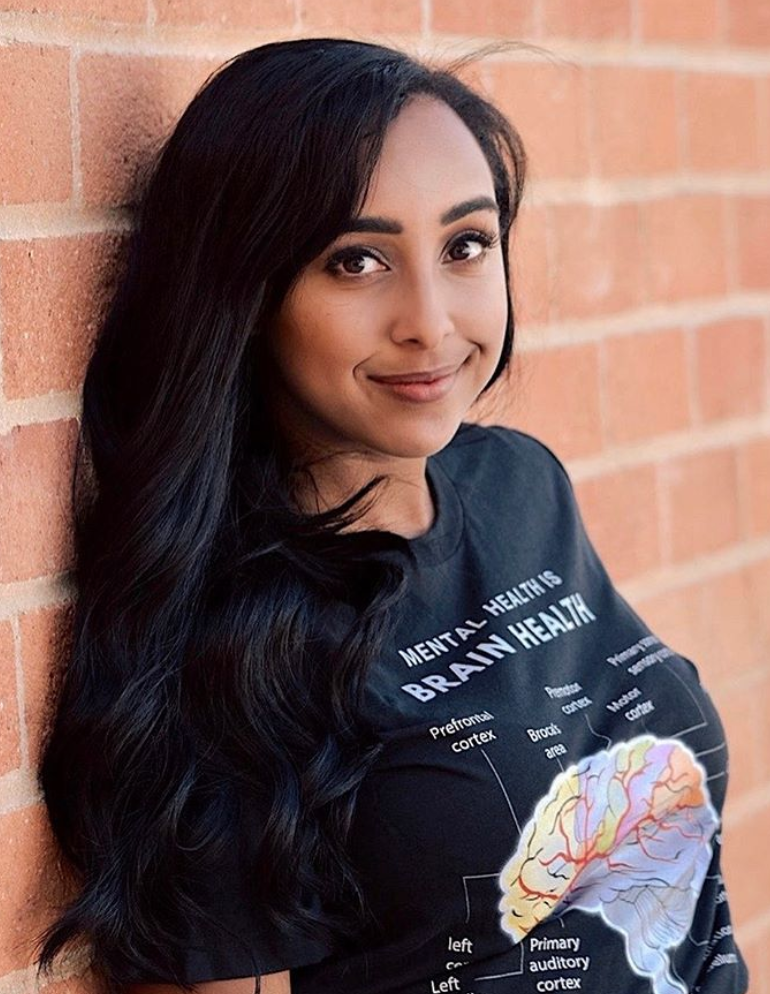LISTEN ON YOUR FAVE PLATFORM NOW: APPLE | SPOTIFY | STITCHER
We hear about how certain foods and products can affect our health but what practical changes or steps can we take to improve what we’re putting on or in our bodies right now?
Since I’m not an expert on this, I brought on a reader in my community, who is also clinical psychology student, Brittney Moses. Brittney is pursuing a career in Clinical Psychology and spends most of her time studying all things the brain, neural, etc.
She shares that in her research, she came across the correlation between diet and mental health because when it comes to things like anxiety, it’s been found that, depending on how clinical and severe, there can be lifestyle changes one can make to help their symptoms because sometimes, symptoms can be caused by nutrient deficiencies.
She went on to share how she believes that God has essentially put the medicine in our natural food. Unfortunately, now, she said, our food is so much more separated from us than it was from generations before us — generations who often knew where their food came from, like the farmer down the road or local butcher.
Now, food is highly factory based and there are a handful of main companies processing nearly all of our meat.
Brittney went on to say that she believes that many of the mental health issues we’re facing as a society now are linked to diet because research has found that there’s a bi-directional gut to brain connection.
THE BI-DIRECTIONAL CONNECTION
For a long time, it was believed that it was one directional. In other words, that the brain was just talking to the gut, telling it what to do such as move food through intestines, break down food, etc.
However, it’s now understood that it’s actually bi-directional, where the gut is also communicating to the brain and the nutrients that are being pulled from the gut, as well as the bacteria, is also sending signals to and fueling the brain.
SUGAR
She also points out that sugar is such a large part of the American diet, and that we consume more sugar in one week than previous generations did in an entire year. It used to be a luxury commodity but now it’s in everything… even if the label doesn’t say it has sugar in it, it’s often present in fructose, corn syrup, etc.
YIKES!
THE ORGANIC BINGE
Once Brittany understood the nutritional science behind what she was eating, she became somewhat overzealous when it came to cleaning up her diet.
She chuckled as she shared that she went on such a big binge, telling her family to throw out all the “bad stuff.”
Eventually, she realized that she might have been a little too extreme in her approach, and has since taken the grace-based approach in order to make for a more sustainable lifestyle.
Then, throughout our conversation, she helps us understand how we, too, can be aware and intentional to take precautions while maintaining a grace-based approach when it comes to fueling our bodies and brains so that we can still live a balanced life.
ADDITIONAL LESSONS
Throughout this very interesting and informative conversation, we covered a bit more on brain functionality as well as tons of practical adjustments we can make to take precautions.
Tune in to learn…
- More about the essential nutrients our brains need regularly
- How to (grocery) shop smarter, and more
- Books to learn more about Vitamin D
- Why Omega 3’s work as building blocks for your brain
Did you like this episode? Let me know your favorite takeaway in the comments!

Hey, J! I have a friend who is really like to share this podcast with, but she’s deaf. Have you ever considered writing out your podcast convos in a drama script kind of way to expand your platform to even the deaf community? Just a thought! Thanks for being YOU.
Megan Cz